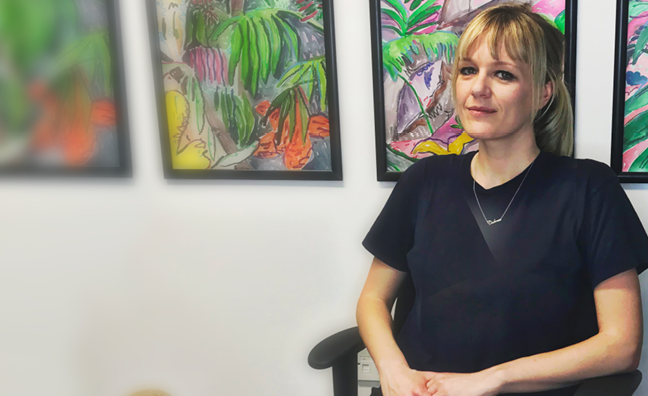What’s the one thing you would change about the music industry?
It’s a big question, and one that’s never too far from the thoughts of many in the business. Issues including equality, diversity, mental health, pay and musicians’ rights are under the microscope like never before, but what can be done to bring about concrete change?
For this week’s special cover story, Music Week gathered a host of top music industry names – from Lyor Cohen and Carla Marie Williams to Corey Taylor and Jason Iley – to hear how they’d reinvent the music industry. The results make for a revelatory read.
Here, we present a taster of just some of the responses…
A big ego is often mistaken for, or seen as, an indication of talent
Jane Third, PIAS
“I would stop rewarding ego. It makes us weak as human beings, encourages us to make bad decisions, to push others down and be blind to opportunity. A big ego is often mistaken for, or seen as, an indication of talent. If we celebrated humility and honesty instead we would see new leaders emerge with true grit and ability.”
Jane Third (chief creative officer, PIAS) pictured above
“I just want there to be more breadth across all sorts of artists and all sorts of music. We’ve always had this incredible legacy as a small country. We’re now in an ecosystem that’s influenced by demographics and the size of countries, fanbases, genres and whatever else. We need to ensure that we still have that rich biodiversity in our music.”
Ben Cook (president, Atlantic Records)
“Now we’re firmly back in growth, I would like the music business to refocus its attention on the long-term relationship between the artist and fan. That should involve both shifting the licensing model to reconnect what the fan pays for streaming of music to go to the artist (the user-centric model) and shifting the live business back to fan-friendly and ethical sale and resale of tickets.”
Annabella Coldrick (CEO, Music Managers Forum)
I don’t think people celebrate each other’s successes enough
Lyor Cohen, YouTube
“I’d like to see a more fraternal order. I don’t think people celebrate each other’s successes enough. When I first touched down in the early ‘80s, all the independent labels that were involved in rap music used to get together in the evening in the East Village late at night, celebrating each other. Because it wasn’t like, ‘If he was successful, I was a failure’. If he was successful, that was hopeful. And so I think a paternal and fraternal order of loving one another and appreciating other people’s successes, I would like to change that.”
Lyor Cohen (global head of music, YouTube)
“There’s still a massive old school culture of bullying really. I think we would all benefit from paying staff properly, getting rid of the culture of working [extra hours] for free, because the job’s enough of a reward in itself and actually seeing people treated
with respect.”
Jon Ollier (live music agent, CAA)
“Producers should get a little bit more exposure and more credit. A producer could make a song that’s a hit but doesn’t necessarily become a radio hit and will make maybe £500. The artist could go to perform it and have millions of streams and make hundreds of thousands from streaming and the producer is left with 3% of that, if they’re lucky and have a good lawyer. That’s not where you get paid, producers and writers are robbed in terms of where our payments come from. If our songs don’t get played on the radio, we don’t make any money.”
JAE5 (producer)
If l had to change anything in the industry it’s how songwriters are treated
Carla Marie Williams
“If l had to change anything in the industry it’s how songwriters are treated! This has been weighing heavy on my heart for the past two years as the current structure in place doesn’t always compensate us for our time or contribution to songs. With the new streaming services dominating the marketplace we are being cut out of a large percentage of the revenue being made.
I would like a structure put in place by labels that compensate all songwriters with points and a fee structure once a song is placed – relying purely on the performance of a song cannot continue to be the only revenue a writer sees off a song. Royalties were mainly based off radio plays, with steaming we’re not getting 90% of the revenue we should.
Like all other creatives we need to be compensated for our time. Running to 300 sessions a year costs and the expectation of publishing advances to cover these costs is not realistic. This is a call for all writers to be paid! All we want is a piece of the pie.”
Carla Marie Williams (songwriter, founder, Girls I Rate)
“The one thing that I would like to change about the music business is to make its ticketing systems accessible and inclusive. The best way that they can do this is to join Attitude Is Everything’s Ticketing Without Barriers Coalition and implement its five principles. Deaf and disabled music fans need: A simple and universal system for evidencing access requirements; accurate and disability-aware information and customer service; choice and flexibility when booking tickets; to be able to trust that access requirements will be met; equal access to everything.”
Suzanne Bull MBE (CEO, Attitude Is Everything)
Subscribers can check out the piece in full by clicking here and here. Keep your eyes on musicweek.com throughout the week for more from the feature.
To subscribe and never miss a music biz story, click here.










